
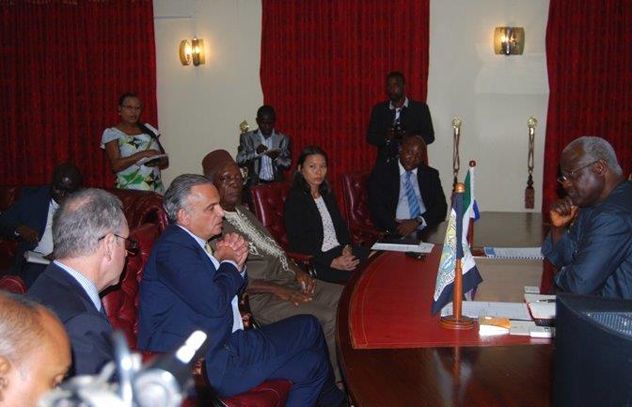
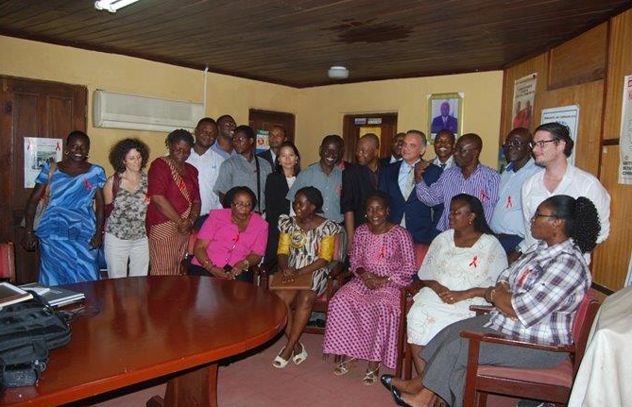
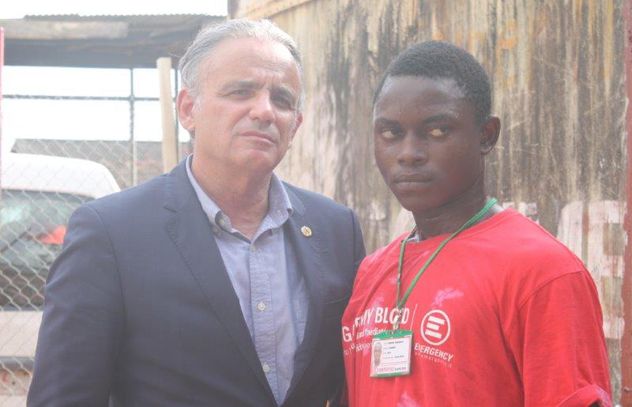
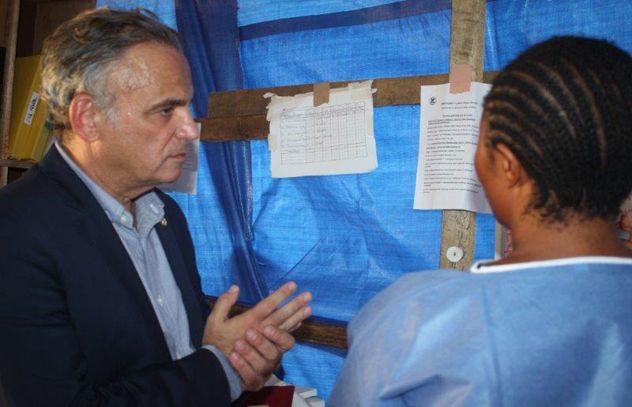
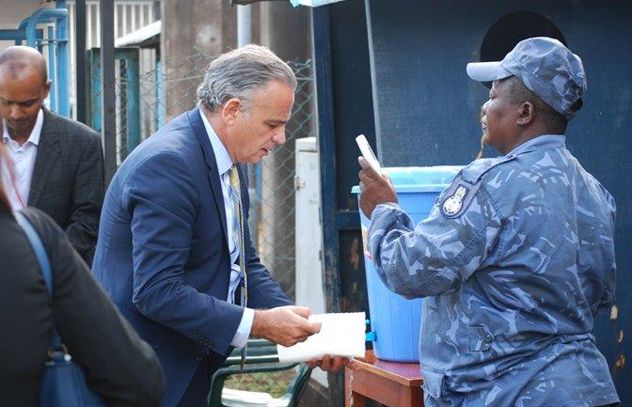
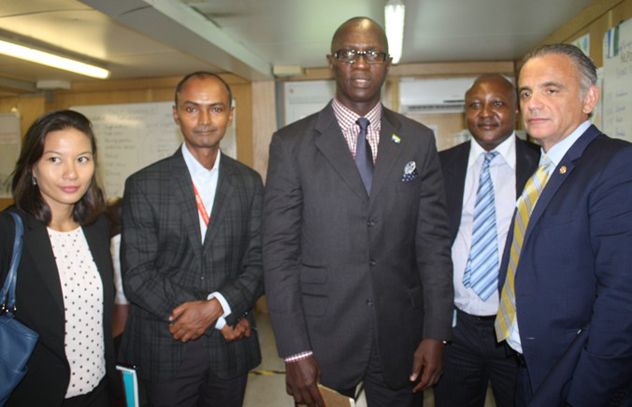
Update
UNAIDS stands in solidarity with countries and communities affected by Ebola
14 November 2014
14 November 2014 14 November 2014The Deputy Executive Director of UNAIDS, Luiz Loures paid a recent visit to Sierra Leone, one of the countries most affected by Ebola, to offer UNAIDS’ support to the government of Sierra Leone in responding to the outbreak. Dr Loures saw first-hand the impact the virus was having on the health system and assessed the impact the weakened infrastructure was having on the wider population, including people living with HIV.
During his visit he met with the President of Sierra Leone, Ernest Bai Koroma who discussed the need for increased international support and mobilization of specialist health care workers. Dr Loures underlined the similarities between the Ebola outbreak and the early days of the AIDS epidemic when there was much misinformation and misunderstanding about the epidemic. They discussed the urgent need for the short term emergency response to be accelerated and for long term plans to strengthen health facilities and community based systems.
The emergency is placing a deep strain on the country’s health sector. The impact on access to essential medicines is a major concern as is the disruption to maternal and child health services. Interruptions in access to medicines for people living with HIV can severely affect their health whilst also increasing the risk of drug resistance. If pregnant women living with HIV don’t have access to antiretroviral medicines during pregnancy, childbirth and breastfeeding, the risk of transmitting HIV to their child is greatly increased.
Community mobilization
Communities have a critical role to play in the response to Ebola and urgently need to be supported with correct information and materials. Communities are key to improving awareness and information across the country as well as helping to prevent stigma and discrimination against survivors and health care workers.
The AIDS community is rallying behind this effort and networks of people living with HIV, with support from the National AIDS Secretariat and UNICEF, are providing their expertise to establish a network of Ebola virus disease survivors. Furthermore, the Sierra Leone Inter-religious network against AIDS (SLIRAN) with support from UNAIDS, is fostering community mobilization for Ebola contact tracing, safe referrals, safe and dignified burials and survivors social integration.
The United Nations Mission for Ebola Emergency Response (UNMEER) is working closely with Member States, regional organizations, civil society and the private sector around five pillars—stop the outbreak; treat people with Ebola; ensure essential services; preserve stability; prevent further outbreaks.
Quotes
“As we are building health care facilities, we are also engaging the communities for people to adopt appropriate healthy behaviours. We need a lot of support on the social mobilization aspects, and we need to recruit and train people in the communities.”
“Our experience in responding to HIV is helping to inform how we responds to Ebola. We have trained 200 Imams on community mobilization and safe and dignified burials. We have a very large constituency and if supported we can do even more.”
“Several health emergencies have been created by the Ebola outbreak. A well-designed response is required that addresses the urgent and longer term health needs of the whole population. Investments and in kind contributions from all sources must be effectively coordinated and deployed. The experience from the AIDS response will be useful in helping to ensure the best possible response.”
Resources
Region/country
Related
 Impact of the pause of US foreign assistance in Côte d'Ivoire
Impact of the pause of US foreign assistance in Côte d'Ivoire

19 February 2025


